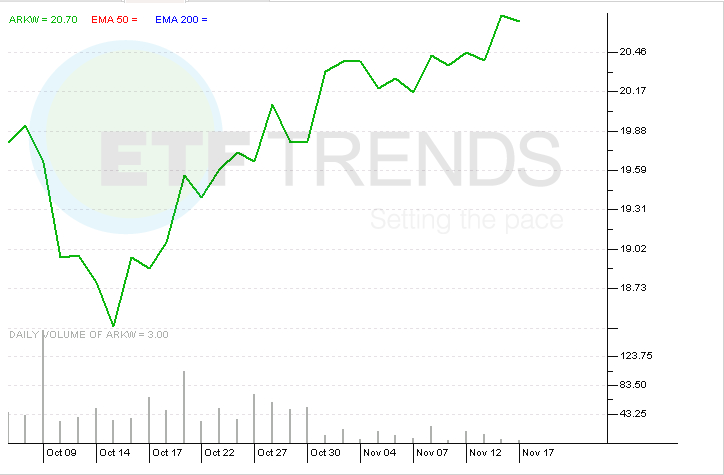3 ETFs to Play the Rental Rebound
Post on: 13 Сентябрь, 2015 No Comment

Recent Posts:
3 ETFs to Play the Rental Rebound
Call it once burned, twice cautious.
Terrified of foreclosures and sluggish job growth, mortgage-issuing banks and consumers have put aside at least for now the American Dream of homeownership in favor of finding a good rental. That means that residential rental housing is fast becoming an enticing investment opportunity.
But purchasing an income property outright can be a dicey proposition and if you don’t savor the propect of being woken up in the middle of the night to unclog a drain or change a fuse, owning and managing a rental property is probably not for you.
There’s a much simpler way to cash in on this boom market, though: owning shares in exchange-traded funds (ETFs) that invest in residential rental real estate investment trusts (REITs).
The current market makes a strong case for rental growth. The collapse in housing prices during the three years of the Great Recession wiped out nearly 39% of U.S. households’ net worth, according to a Federal Reserve study released last week. But people still have to live somewhere and that usually means multifamily apartments or rented homes.
Because of growing demand, the rental housing market is booming and tight as InvestorPlace’s Ethan Roberts has illustrated .
Freddie Mac, which released its June 2012 Economic and Housing Market Outlook on Wednesday, found that 1.5 million additional households have moved into rentals over the past year a 4% increase in a single year. Rents rose 2% to 4% over the same period.
Lower vacancies and higher rents mean more income, and REITs, which are required to pay out 90% of their annual earnings to investors, are particularly attractive. The cash flow tends to be more stable than in some other investments because of the steady flow of rent payments. They also can offer better-than-average dividends.
Notable REITs in the residential space include apartment complex builders and owners such as Essex Property Trust (NYSE:ESS ), AvalonBay Communities (NYSE:AVB ), Equity Residential (NYSE:EQR ), UDR (NYSE:UDR ), Camden Property Trust (NYSE:CPT ) and BRE Properties (NYSE:BRE ).
Of course, REIT investing is no sure thing, as we discovered during the recent financial crisis. REIT ETFs are a good play, though, because they offer exposure to the sector and diversification. Some REIT ETFs are narrowly focused on the residential rental niche while others have a broader scope.
Here are three REIT ETFs with residential rental exposure to help you cash in on the rental rebound:
iShares FTSE NAREIT Residential Plus Capped Index Fund (NYSE:REZ ). If you’re looking for an ETF that’s the closest thing to a residential rental REIT pure play, REZ fits the bill. REZ tracks the index above, and its top holdings include apartment complex REITs such as Equity Residential, AvalonBay, Essex Property, Camden Trust, UDR and BRE Properties. It also includes the health-care property REIT Ventas (NYSE:VTR ) and shares in self-storage giant Public Storage (NYSE:PSA ).

With $187 million in assets, REZ is the smallest of the REIT ETFs listed here. Trading around $47, its more than 30% above its 52-week low last October. Its current dividend yield of 3.7% is the highest of these three funds. So is its expense ratio at 0.48 but that still isn’t too bad.
It has a three-year return of more than 33% and a year-to-date return of more than 8%. If you believe residential rentals will be the sweetest spot in REIT investments this year, this ETF is a good match.
SPDR Dow Jones REIT ETF (NYSE:RWR ). For more diversification, look to RWR, which tracks the broader Dow Jones U.S. Select REIT index. In addition to rental residential REITs such as Equity Residential and AvalonBay, the ETF also invests in health care with HCP (NYSE:HCP ) and Health Care REIT (NYSE:HCN ). Its largest holding is in shopping mall giant Simon Property Group (NYSE:SPG ).
With about $1.9 billion in assets, RWR is trading around $71, up 36% since its 52-week low last October. It has a current dividend yield of 2.9% and an expense ratio of 0.26. It has a three-year return of 32% and a year-to-date return of 12%.
Vanguard REIT ETF (NYSE:VNQ ). If you want maximum diversification and minimum fees, consider VNQ, which invests in more than 100 different U.S. REITs. This ETF has some of the usual holdings, such as AVB and EQR, with SPG leading the pack at about 10% of its holdings. But it also includes Prologis (NYSE:PLD ) a global owner, operator and developer of industrial real estate, and Host Hotels & Resorts (NYSE:HST ).
With more than $12 billion in assets, VNQ is trading around $64.50 37% above its 52-week low last October. It has a current dividend yield of 3.3% and a dirt-cheap expense ratio of 0.12. Its three-year return is over 32%, and its year-to-date return is 12%.
As of this writing, Susan J. Aluise did not hold a position in any of the stocks named here.














